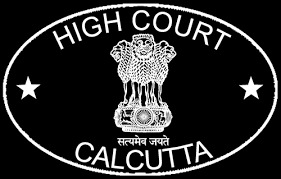@JUDGMENTTAG-ORDER
L. Narasimha Reddy, J.@mdashThe petitioners claim to be the legal representatives of one Sree Kareemullah, original owner of premises bearing No.
16-5-291/1 of Khidki Bood Ali Shah, Hyderabad. The property admeasuring 460 square yards is said to have been purchased under registered document on 19th Azur, 1958 Fasli. The Commissioner, Municipal Corporation of Hyderabad, the 2nd respondent issued notification dated 04-01-1996 u/s 3(1) of the Andhra Pradesh Slum Improvement (Acquisition of Land) Act, 1956 (for short, ''the Act''). This was followed by a notification u/s 3(2) of the Act dated 15-03-1996. The petitioners filed Writ Petition No. 20606 of 1996 challenging the same on the ground that they were not put on notice by the 2nd respondent. The writ petition was allowed on 01-10-1997 and the notification u/s 3(2) was set aside. The 2nd respondent was directed to issue notice to the petitioners. In compliance with the directions issued by this Court, the 2nd respondent issued notice to the petitioners directing them to show cause as to why notification u/s 3(2) of the Act, be not issued. The petitioners submitted explanation. It was pleaded that the area is covered by a pucca house and it cannot be treated as a slum. Other grounds were also urged. Through order dated 28-11 -1998, the 2nd respondent rejected the objections of the petitioners. The same is challenged in this writ petition.
2. Heard Sri L. Ravi Chander, learned Counsel for the petitioners; learned Government Pleader for Municipal Administration for the 1st respondent; Sri R. Ramachandra Reddy, learned Standing Counsel for the 2nd respondent and Sri Srinivas Emani, learned Counsel for respondent Nos. 3 to 9.
3. This is the second round of litigation initiated by the petitioners vis-a-vis the notifications issued by the 2nd respondent under the Act. The proceedings under the Act commenced with the publication of the notification under Sub-section (1) of Section 3. Through that, the intention of the 2nd respondent to declare a particular area as a slum becomes manifest. The Act does not place any obligation on the 2nd respondent to issue notice to the owners of the land. The actual consideration of the claims of the owners takes place only after the notification under Sub-section (1) is published. Previously, the notification under Sub-section (2) was issued without serving any notice on the petitioners. This Court intervened and the said notification was set aside.
4. The 2nd respondent issued show cause notice to the petitioners directing them to explain as to why the notification u/s 3(2) be not issued in respect of their property. The petitioners raised several objections and pointed out that the area cannot be declared as slum at all. The 2nd respondent however refused to go into that aspect and the same is evident from paragraph 5 of the order:
Heard the arguments, perused the records. In this case the MCH is not supposed to go back to the history to find out whether Khidiki Bood AN Shal Slum notified u/s 3(1) of A.P. Slum Improvement Act vice Notification published in A.P. Gazette No. 6, dated 4-1-1996 is actually a slum, as the issue was neither challenged in the High Court nor Honourable Court directed this Corporation to verify. The only issue before this corporation is to provide reasonable opportunity to the parties to represent under Sub-section (2) of Section 3 for the proposed acquisition and then to pass appropriate orders in accordance with Law after considering their objections. So the Plea of Sri Narsing Rao the Counsel for the Legal Representatives of Kareemullah stated to be the Land Owners to produce witnesses to prove whether it is a Slum or not at this stage cannot be considered. Hence rejected.
5. The very approach of the 2nd respondent is untenable. As pointed out earlier, the publication of a notification u/s 3(1) would result in nothing more than manifestation of their intention to declare particular areas as slum. No finality can be attached to it. The very object of issuing notice to the affected parties u/s 3(2) is to enable them to put forward their contentions. No restrictions are placed as to the grounds that can be urged by them. It is fundamental and but natural that the affected party can certainly convince the authority that the provisions of the Act cannot be invoked vis-a-vis his property at all. Adding finality to notification u/s 3(1) which is not preceded by any exercise of issuance of show cause notice is contrary to the very scheme of the Act. The 2nd respondent committed a serious error in proceeding on the assumption that the notification u/s 3(1) had become final. In case, the petitioners are able to point out that the provisions of the Act cannot be invoked vis-a-vis their property, that very notification is liable to be withdrawn. In a given case, a specific order can be passed withdrawing such notification or the purpose can be achieved by just discontinuing the proceedings beyond that stage. The 2nd respondent also pointed out that the petitioners and others have to work out their remedies to resolve the internal disputes. Here again, the 2nd respondent faltered. The Act itself provides for mechanism in such cases.
6. Hence, the writ petition is allowed and the impugned notification is set aside. Consequently, the competent authority under the Act shall consider the objections raised by the petitioners and pass fresh orders of within a period of two months from the date of receipt of a copy this order, duly issuing notice to the petitioners.

